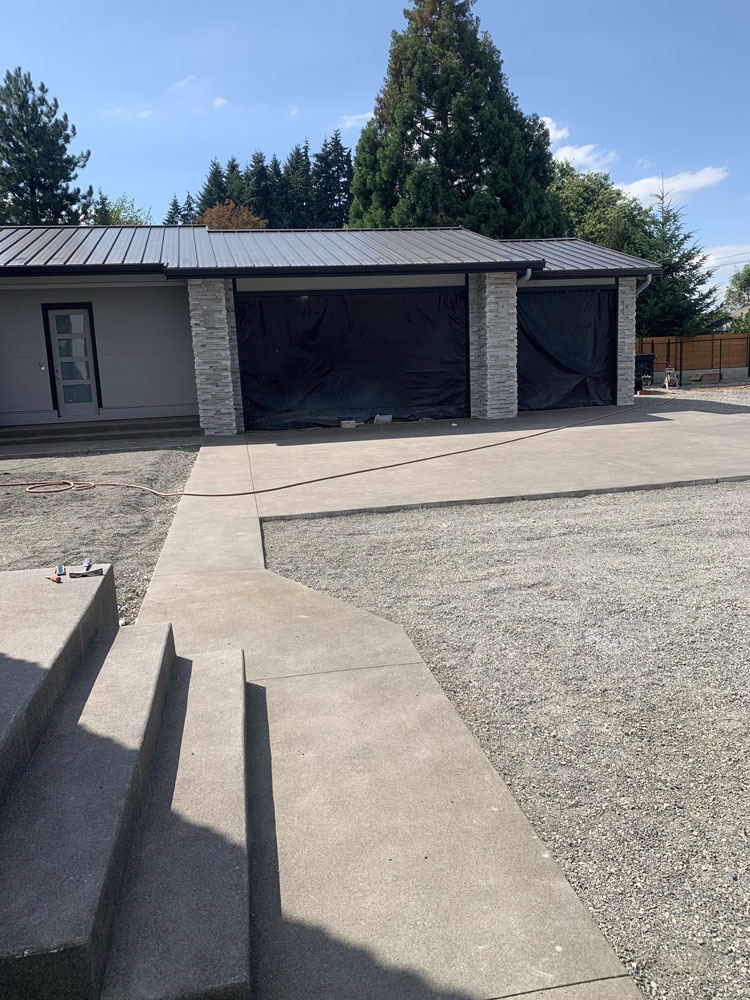Introduction
Creating a beautiful and sustainable landscape is no small feat, and when it comes to pathways, masonry walkways are often masonry contractor services the unsung heroes of our gardens, yards, and public spaces. They offer both functionality and aesthetics, but how can we make these essential features more eco-friendly? This article aims to explore eco-friendly options for sustainable masonry walkways, discussing various materials, construction methods, and design principles that prioritize environmental health while achieving stunning results.
Masonry Walkway: A Sustainable Choice?
When you think about masonry walkways, what comes to mind? Durable bricks, elegant stones, or perhaps cobblestones? These materials have been used for centuries, but their environmental impact has often gone overlooked. The question arises: Are they really sustainable choices?
Understanding Masonry Materials
Masonry materials include a variety of substances such as brick, stone, concrete pavers, and more. Each has its own set of characteristics that can either contribute to or detract from sustainability.
Bricks
- Production: Traditional clay bricks are made from natural clay and fired in kilns. However, this process can be energy-intensive. Durability: Bricks are incredibly durable and can last for decades if properly maintained. Recyclability: At the end of their life cycle, bricks can often be recycled or reused.
Concrete Pavers
- Eco-Friendly Options: Consider permeable concrete pavers which allow water to seep through. Longevity: Concrete is robust but requires significant energy during production.
Natural Stone
- Aesthetic Appeal: Natural stone offers an unmatched beauty but extraction can be harmful to the environment. Sustainability: Locally sourced stone minimizes carbon footprints significantly.
Eco-Friendly Options for Sustainable Masonry Walkways
Choosing eco-friendly options for your masonry walkway means considering every aspect—from material selection to installation techniques. Below we’ll delve into practices that enhance sustainability.
1. Permeable Pavers
Permeable pavers allow rainwater to infiltrate through the surface rather than running off into storm drains. This helps recharge groundwater aquifers—a crucial element of sustainable landscaping.
Benefits of Permeable Pavers
- Reduces flooding. Filters pollutants before they enter waterways. Encourages native plant growth by maintaining soil moisture levels.
2. Recycled Materials
Using recycled materials not only reduces waste but also lessens the demand for new resources.
Types of Recycled Materials
Reclaimed bricks Recycled concrete aggregate Glass paversThese materials can add unique character to your walkway while promoting environmental responsibility.
3. Low-Carbon Footprint Production
Look for manufacturers who use low-energy processes in producing masonry materials.
Examples Include:
- Solar-powered kilns for brick production. Local sourcing to minimize transportation emissions.
4. Eco-Conscious Sealants
Many sealants contain harmful chemicals that can leach into the environment. Opting for eco-friendly alternatives will protect your masonry without compromising safety.
Benefits of Eco-Conscious Sealants:
- Non-toxic ingredients. Biodegradable properties.
Designing Your Eco-Friendly Walkway
5. Native Plant Integration
Incorporating native plants alongside your masonry walkway not only enhances its beauty but also supports local ecosystems by attracting wildlife and reducing maintenance needs.
How To Choose Native Plants
Research local flora suited for your climate zone. Consider plants that require minimal irrigation once established.6. Green Infrastructure Elements
Implementing green infrastructure elements like bioswales or rain gardens adjacent to your walkway helps manage stormwater effectively while adding aesthetic appeal.
Construction Techniques That Promote Sustainability
7. Minimal Ground Disturbance
Reducing ground disturbance during installation preserves existing ecosystems and minimizes erosion risks.

Techniques To Use:
- Install using dry-laid methods where possible.
8. Modular Design Approaches
Using a modular approach allows flexibility in design while facilitating easier repairs if needed down the line—saving resources in the long run.
Selecting the Right Contractor
9. Certification Matters
When hiring a contractor for your masonry walkway project, look for certifications in sustainable practices which ensure they employ eco-friendly methods throughout their work process.
Questions To Ask Potential Contractors:
What eco-friendly materials do you recommend? Can you provide examples of past sustainable projects?10. Community Involvement Opportunities
Engaging with local communities during planning stages fosters partnerships that enhance sustainability efforts—consider community workshops on installation techniques!
Maintenance Practices That Sustain Eco-Friendliness
11. Regular Cleaning Techniques
Utilizing natural cleaning products reduces chemical runoff into nearby soils and waterways while keeping your walkway looking pristine!
12. Seasonal Inspections & Repairs
Conducting seasonal inspections helps catch potential issues early—prolonging lifespan without resorting to full replacements!
FAQs About Eco-Friendly Masonry Walkways
Q1: What materials are considered eco-friendly for masonry walkways?
A1: Eco-friendly options include permeable pavers, reclaimed bricks, recycled concrete aggregates, and locally sourced natural stones.
Q2: How do permeable pavers benefit the environment?
A2: Masonry Contractor They allow rainwater infiltration which helps reduce flooding risks and filter pollutants before entering water systems.
Q3: Are there eco-friendly sealants available?
A3: Yes! Look for non-toxic and biodegradable sealants specifically designed for masonry applications.
Q4: What is minimal ground disturbance in walkway installation?
A4: It refers to construction techniques aimed at preserving existing vegetation and soil structure during installation processes.
Q5: Why should I consider native plants alongside my walkway?
A5: Native plants require less maintenance; they attract beneficial wildlife while enhancing overall ecosystem health around your pathway!
Q6: How important is contractor certification regarding sustainability?
A6: Very! Certified contractors are knowledgeable about best practices in sustainability ensuring responsible material use throughout construction projects!
Conclusion
In conclusion, creating an environmentally friendly masonry walkway is achievable through thoughtful material selection, innovative design principles, responsible contracting choices—and yes even regular maintenance practices! By opting for eco-friendly options like permeable pavers or recycled materials while integrating native plants into landscaping designs we not only beautify our spaces but also safeguard our planet’s health—one step at a time! So why wait? Start planning your sustainable adventure today!